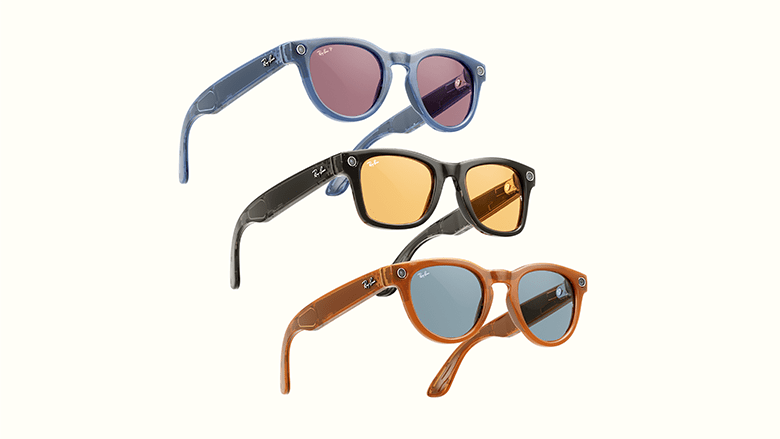
Meta Quest 3 brings affordability to XR headsets
Meta Platforms, the parent company of social media giant Facebook, revealed a range of innovative products and features at its annual products conference held in Menlo Park, California. Meta Quest 3
The event showcased advancements in artificial intelligence (AI), mixed reality, and wearable technology, reflecting Meta’s dedication to shaping the future of technology and connectivity.
Here are the key announcements made during the event:
Quest 3 Mixed Reality Headset:
Meta launched the Quest 3, positioning it as their inaugural mainstream headset engineered for mixed reality experiences. The Quest 3 is equipped with double the graphic processing power compared to its predecessor, the Quest 2, and is powered by Qualcomm’s Snapdragon XR2 Gen 2 platform. The headset is slated to receive over 100 new and upgraded game titles this year, many of which will integrate mixed-reality experiences. Meta disclosed that Microsoft’s Xbox Cloud Gaming will be accessible on the Quest platform from December, providing users access to popular titles like Halo Infinite and Minecraft Legends. The Quest 3 is priced starting at $499.99 and is set to begin shipping on October 10.
Analysts say Meta’s Quest 3 scores over Apple’s Vision Pro with the absence of tethering. There is no battery pack that needs to be attached nor a wire connecting to a power source. It is also smaller than Meta’s Quest 2 and brings in a premium attribute like mixed reality (XR) at an affordable price.
Qualcomm’s new Snapdragon XR2 Gen 2 makes Quest 3 more powerful and twice as fast as the premium Quest Pro, taking it a step further towards being user-friendly. GlobalData estimates revenues from virtual reality (VR) headsets to reach more than $58 billion in 2030, making that a market ripe for innovation.
“Meta continues to provide multiple subsidies on its headsets, keeping them affordable, although that is impossible to sustain long as a business strategy. Gaming is a key use case for XR headsets, and the addition of Xbox Cloud gaming will aid in endearing the Quest 3 to gamers. But headsets are limited in their ability to go mainstream, and Meta’s market lead is about to be challenged with the release of Apple’s Vision Pro,” Anisha Bhatia, Senior Analyst at GlobalData said.
The Quest 3 is not a direct competitor to Apple’s Vision Pro, which brands itself as an augmented reality (AR) headset, costs seven times more, and plays in the uber-premium category. But Apple’s entry in this market has brought all eyes to this segment, and the small number of headsets available overall means that everyone is pitted against each other, whether they directly compete or not, Anisha Bhatia said.
Ray-Ban Smart Glasses Meta Quest 3
Meta unveiled the latest generation of Ray-Ban smart glasses, priced at $299, with shipping commencing on October 17. These smart glasses offer users the capability to livestream directly from the glasses to their followers on Facebook and Instagram. The glasses also integrate Meta AI, providing users with information about the item they are looking at.
The event demonstrated Meta’s commitment to advancing the intersection of AI and everyday experiences, further underlining the company’s mission to connect the world through innovative technologies. With these product announcements, Meta is taking significant strides toward reshaping the future of social interaction and immersive experiences.
Improved Audio
Ray-Ban next-gen smart glasses are a huge step up for calls, music, and podcasts. They have custom speakers, double the bass, 50% louder sound, and directional audio. The five-microphone array captures immersive audio for videos.
Share Your Point of View
Ray-Ban smart glasses have a 12MP ultra-wide camera that takes great photos and 1080p videos up to 60 seconds. You can share photos directly from your glasses with a voice command. Images are automatically taken in portrait orientation and optimized to capture your point of view. Sharing is even easier with the new Meta View app.
Power Up
Ray-Ban Meta smart glasses are powered by the Qualcomm Snapdragon AR1 Gen1 Platform for higher-quality photo and video processing and faster computing. They come with a sleek charging case that holds up to eight additional charges (for a total of 36 hours of use).
The Ray-Ban Meta smart glasses collection comes in the timeless Wayfarer style you already know and love (in standard and large sizes), plus a brand-new Headliner design for a more retro look—both of which are available in Matte Black and Shiny Black.
AI Chatbots
Meta introduced a wide array of more than two dozen AI chatbots integrated into its social media applications. Notably, Meta AI, a conversational assistant, was announced to be available on WhatsApp, Messenger, and Instagram. This assistant is designed to deliver real-time information and generate photo-realistic images based on users’ text prompts. Meta has collaborated with Microsoft’s Bing search engine to fetch information from the internet. Additionally, Meta is set to add 28 more AI chatbots, each embodying the personality of well-known celebrities like Bear Grylls, Chloe Kim, and Josh Richards, among others. The company also introduced Meta AI Studio, a platform enabling developers to create custom AI chatbots. These chatbots will possess profiles on Instagram and Facebook, allowing users to engage with them across various platforms. Both the chatbots and the AI Studio will launch in beta in the United States.










